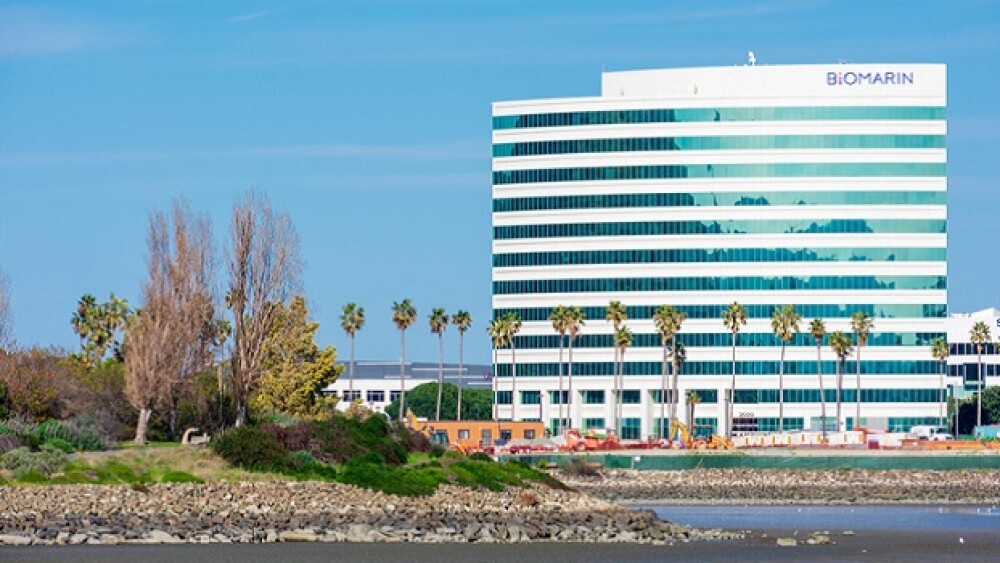After an initial rejection, BioMarin has finally secured the FDA’s approval for Roctavian, the first gene therapy in the U.S. for the most common form of the bleeding disorder.
Pictured: BioMarin headquarters/iStock, Michael Vi
The FDA has approved BioMarin Pharmaceutical’s valoctocogene roxaparvovec-rvox, to be marketed as Roctavian in the U.S., for the treatment of adult patients with severe hemophilia A, the company announced Thursday.
Roctavian, a one-time single-dose infusion, is authorized for use only in adults without antibodies against the adeno-associated virus serotype 5 (AAV5), as determined by an FDA-approved test. It is also the first gene therapy approved for hemophilia A, according to BioMarin’s news release.
In an investor call Thursday afternoon, BioMarin Chief Commercial Officer Jeff Ajer said that “the product profile of Roctavian presents tremendous value to patients, including bleed control, good safety profile and freedom from the burden of chronic therapy.”
Roctavian is “priced at a wholesale acquisition cost, or WAC, that equates to $2.9 million for the typical patient for this one-time, single-dose treatment,” Ajer said.
Hemophilia A is an inherited genetic disorder that arises due to a dysfunctional or absent clotting protein called factor VIII. When left unchecked, the condition causes bleeding in muscles and joints. Delivered using the AAV5 vector, Roctavian introduces a shorter but functional copy of a gene that encodes for blood-clotting protein factor VIII.
BioMarin’s gene therapy allows the patient’s body to produce factor VIII on its own and lower the need for continuous prophylaxis and management.
To back its regulatory bid, BioMarin presented data from the Phase III GENEr8-1 study which enrolled 134 patients and is the largest late-stage trial of any gene therapy in hemophilia, according to the company. The study found that Roctavian cut the annualized bleeding rate by more than 50% relative to baseline while receiving routine factor VIII prophylaxis.
The gene therapy also strongly lowered the rate of spontaneous and joint bleeds. These effects were durable through at least three years of follow-up without the need for supplemental regular prophylaxis.
BioMarin will continue to evaluate Roctavian’s long-term effects in an extension study that will follow GENEr8-1 participants for up to 15 years, as well as in post-approval studies looking at the gene therapy in a real-world setting.
Thursday’s approval is the culmination of a long regulatory journey for Roctavian. BioMarin’s first attempt at approval was in February 2020 and its submission was granted the FDA’s Priority Review designation at the time. A few months later, however, the regulator turned the application down, saying it needed more long-term data.
BioMarin resubmitted its Biologics License Application in September 2022 with five years’ worth of data from an ongoing Phase I/II dose escalation study, along with two-year follow-up results from GENEr8-1. Together, these data indicate that Roctavian could induce stable and durable bleeding control in hemophilia A patients.
When Roctavian launches in the U.S., it will compete with several other hemophilia A medicines that have already established their respective market footholds. Chief among them is Roche’s Hemlibra (emicizumab-kxwh), a bispecific antibody that in 2022 made the pharma company more than $4.2 billion in sales.
Tristan Manalac is an independent science writer based in metro Manila, Philippines. He can be reached at tristan@tristanmanalac.com or tristan.manalac@biospace.com.






